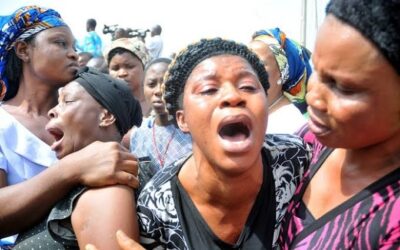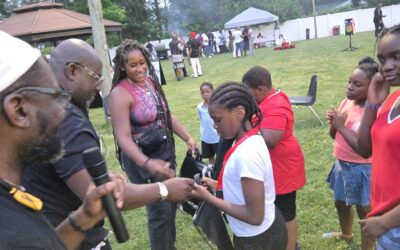Followers of socio-political developments all over the world will be familiar with the unsavoury circumstances that have subsisted in the horn of Africa, the Western Sudanese region of Darfur. On 10 April, 2006, concerned individuals and international humanitarian organisations will gather outside Sudanese Embassies all over the world to demonstrate their resentment, anger and distaste for the existence, in modern day sociology, of one of the most barbaric and inhumane circumstances known to man. The region houses an estimated 7 million people. Over the last 13 or so years, they have been overwhelmed by ecological and political problems in proportions not in existence in anywhere else in the world. Intensity conflicts; irreconcilable competition over access to limited grazing land and water between farmers; bitter and intense rivalries between local communities over representation in Government structures exacerbated by the widespread availability of small arms and light weapons raising levels of violence to unimaginable proportions represent the current “order of business” in the region.
Despite the humanitarian efforts, intervention and interest that have been brought into consideration in the region chiefly by those outside the country, civilians in that area continue to perish at a disturbingly alarming rate. The United Nations estimates that 75,000 people died between April and September 2004. As a consequence of the combined mortality from violence, disease and malnutrition from the beginning of the conflict in February 2003, more than 300,000 people have died.
How and why has this occurred? The current conflict appears to have started in February 2003 when a group, the Sudan Liberation Army, initially described as the Darfur Liberation Front, launched and captured the city of Gulu. Their demands included, amongst other features, socio-economic development of the region and an end to the activities of tribal militias. The attacks did not end there. There were a number of others that occurred, particularly in two other towns, El Fashir and Melit. The Sudanese Government launched a response against the FLA on land and by air. Later in 2003, multiplying the resistance, another movement called Justice and Equality Movement (JEM) emerged. Both groups closed ranks and waged armed attack. The crisis spilt into neighbouring Chad with the effect that over 200,000 refugees have fled to Chad. The consequence is that ethnic divides exists on both sides of the border, heightening tension and communal existence.
The rest of the world, it must be said, was very slow to intervene. Under the auspices of the Chadian President, Idris Deby, the Sudanese Government and FLA signed a cease-fire agreement. This provided for 45 days cessation of hostilities; the control of illegal groups; the cantonment of forces and locations that were to be agreed by the parties. There were further agreements that there would be comprehensive space in order to achieve sensible socio-economic developments. Negotiations to achieve this agreement were scheduled to begin 15 days after the signing.
On 4 November 2003, the parties agreed to extend the ceasefire for one month. They also agreed themselves to facilitate welcome of humanitarian assistance. Fighting stopped following the agreement, but the violence amongst the civilian population quadrupled. A militia group emerged called “Djanjaweed”. Its sole objective was to target civilians who were viewed as providing support to both FLA and JEM. Since then, political relationships between the Governments of Sudan and FLA/JEM have been riddled with tension, distrust and indiscriminate breaking of the agreements reached in the ceasefire. The United Nations Commission of Inquiry has detailed atrocities graphically unimaginable and incapable of description. The violence is continuing in proportions and by methods hitherto unknown to man, as is the systemic breakdown of all structures in that region of Africa. In short, mass murder and genocide occurs even as we write and the world looks on with all but a passing interest.
Many of the victims of these unfortunate developments have no say in decisions made to war. The populace have limited or no resources to contain the problems that it is experiencing. The people of the region have been striped of the kind of will that would allow them come together and rise to confront its problems. The people from whom this kind of resistance can be expected are dying by the day. There is no distinction between night and day as death roams, unchecked. Security in the region is completely non-existent.
Human life has not, until this circumstance, been so manifestly trivialised any where else in the modern world. The world needs to be reminded that it is inhuman to luxuriate with the privileges of life whilst others perish without a whimper. Whilst the pre-occupation of resource allocation; posturing in the exertion of political power in world politics; duration and dimension of self governance; and religious “intolerance” reign supreme, the people in Darfur grapple with the vagaries of survival. Our organisation is deeply committed to the eradication of this kind of injustice. We say, with some authority, that very limited discussion and positive action has occurred about this growing catastrophe. Despite the African Union’s limited involvement, there has been a lack of commitment that appears to suggest that Darfur is not one of Africa’s problems, sadly, not even amongst Africans. The world, in many respects, was oblivious to these developments, until the visit in 2004 of Colin Powell, and Koki Anna, then Secretary of State and the Secretary General of the United Nation respectively. Despite the first-hand reports from these accomplished personalities, the world remains curiously mum. Peace must be restored to that region. Needless death must be restrained. The mortality rate from violence is significantly higher than from disease, an undignified statistic anywhere in the world.
This situation is indeed disturbing. Our organisation, in its advocacy role must and has assumed the responsibility to become more actively involved in seeking an end to the genocide that is occurring in Dartford. As an organisation, we will rouse our people in various sections of the world where we exist to join ranks to those who see the injustice of this situation. We call on leaders of organisations, institutions and relations to give some thought and attention to what is happening in the first. The persistence of this abomination is an indictment to who exist in the free world. We must all act and do so NOW. In the words of the AU Commission Chairman, Alfa Kotare “tomorrow will be too late”.
Signed:
ANDREW OBINNA ONYEARU
NAS Capone
National Association of Seadogs (NAS)
5th April 2006



